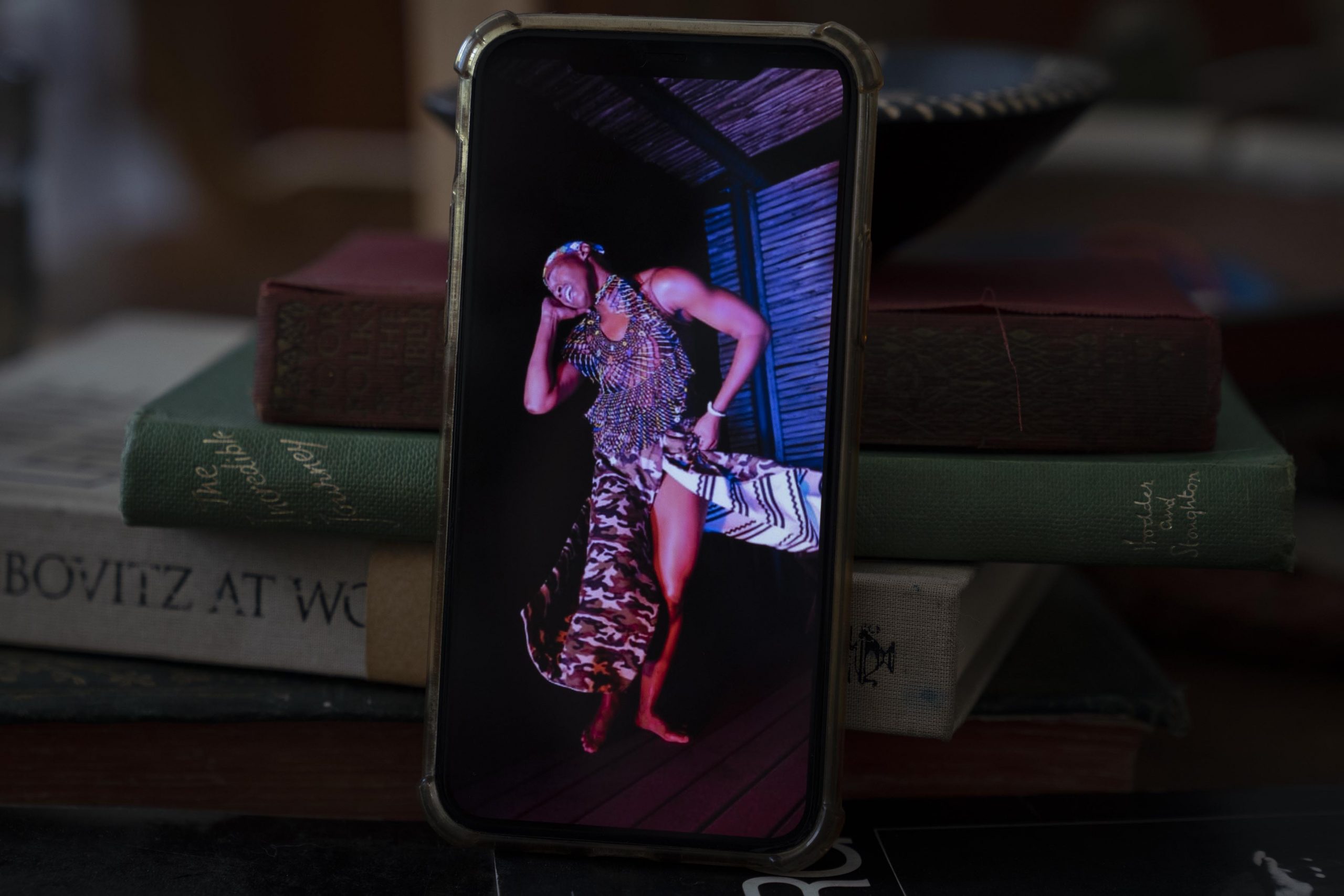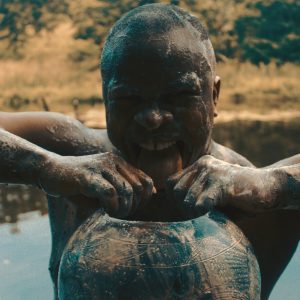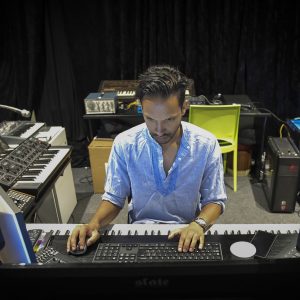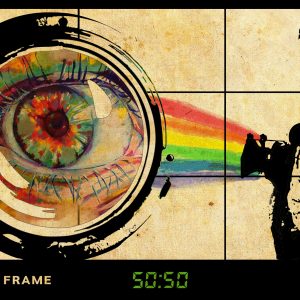Pocket performances in a festival on your phone
The My Body My Space festival’s move to WhatsApp explores the potential for using applications as a site of performance for South African creatives, during and beyond Covid-19.
Author:
9 March 2021

The My Body My Space (MBMS) public arts festival, launched in Emakhazeni, Mpumalanga, in 2015, eschewed the darkened corners of the traditional black-box theatre for open fields, school yards, church buildings, playgrounds and busy intersections. These became the stages and gallery spaces for local and international creative practitioners.
The festival, curated by the Forgotten Angle Theatre Collaborative, delighted audiences who crammed into minibuses or followed along on foot as they made their way around Emthonjeni, Siyathuthuka, Sakhelwe and Emgwenya.
Over the years, MBMS has built a formidable reputation, not only owing to the calibre and range of the performances, but also because it works to decentralise the prominence of significantly more resourced provinces such as Gauteng and the Western Cape with regard to the performing arts.
Then, the pandemic.
Related article:
Last year brought the Forgotten Angle Theatre Collaborative room for pause to contemplate the future of this festival. The impulse for most of the performing arts industry was to migrate to streaming work online. But this approach excluded a large audience and artists for whom data and connectivity are a major issue. These were the same group of people who made up the majority of MBMS’ collaborators, constituents and audience.
In dreaming up the festival for 2021, Namatshego Khutsoane, the festival’s development manager, said that the MBMS team was “so clear that it had to be outside of or counter to the culture we were seeing develop, which was a really privileged space”.
When MBMS opened on 29 January, artistic director PJ Sabbagha was adamant that “inclusion and access is not just an invitation” but an active structuring and positioning of resources that respond to the contexts of the people the festival serves.
“Can we accept this as a model of best practice in the current situation that we are sitting in right now? Fully,” Khutsoane said of the choice to host this year’s festival exclusively on WhatsApp. The turn to the app as a site of performance is one that many cultural workers are exploring in thinking about ways to “stage” their work in ways that place accessibility – and perhaps experimentation too – at the heart of their considerations.

WhatsApp chat dramas
The soapie has long held the hearts of South Africans. The year 1994 brought with it Mfundi Vundla’s Generations, which, shortly after, gave rise to long-standing favourites such as 7de Laan and Isidingo.
In 2016, Sanlam rolled out Uk’shona Kwelanga, a WhatsApp soap opera created to promote its new funeral scheme. The seven-part daily series was written by the award-winning Bongi Ndaba, whose writing credits include Generations, Uzalo, Home Affairs, Isidingo and eHostela. The series unfolded primarily through WhatsApp texts, voice notes, pictures and videos. The audience followed the story of the Langa family through a WhatsApp group chat as the unexpected death of Bab’Langa leaves the relatives scrambling to plan his funeral.
According to King James Group, the marketing firm behind the campaign, Uk’shona Kwelanga garnered 46 000 subscribers. It went on to win bronze in the PR & Media Communication and the Effective Creativity categories at the 2018 Loeries. Despite its success, the use of WhatsApp as a theatrical platform remained relatively unknown to creatives in the performing arts.
Related article:
Smartphone penetration in South Africa rose from 43.5% in 2016 to 91.2% in 2019. This is according to the 2020 State of the ICT Sector report released by the Independent Communications Authority of South Africa. Statista reported that as of February 2020, WhatsApp was used by 58% of cellphone users in the country.
For the performing arts sector, 2020 meant that WhatsApp gained more prominence, in part owing to the National Arts Festival’s decision to host a virtual offering.
The Shopping Dead, a fast-paced WhatsApp dramedy (produced by this writer) that premiered at the National Arts Festival was received well by both audiences and critics – garnering an audience of over 600 people over three performances. Like Uk’shona Kwelanga, it used the premise of a WhatsApp group chat to drive the plot, except this time the interactions were exchanged live by actors.
As a festival on your phone, MBMS takes the use of WhatsApp as a platform of performance further.

Interacting with the festival
On cellphones, MBMS begins with a greeting. Texting “hi” to the WhatsApp line prompts a menu with different options that allows audience members to view and interact with the festival at their discretion. The automated structure of the festival was made possible through a partnership with Turn.io, a cloud-based application that works with the “WhatsApp for business” option.
The festival menu lets the audience choose their preferred performance, which is then sent directly to their phone for downloading. To enable access, the festival features bite-size performances in no more than 256 megabytes.
The programme boasts more than 80 different performance offerings. Collaborations across provincial and national borders include artists from Zimbabwe, Madagascar, Mozambique, Tanzania, the United Kingdom, Germany, Spain and the United States. The works range from short performances of one to three minutes each to longer pieces broken up into segments, and even longer pieces that require audience members to click out to sites such as Vimeo.
Related article:
The festival has always been concerned with space, whether it be private, personal, shared or communal. The Covid-19 pandemic has required a different negotiation with space, which appears as a theme throughout the programme.
Christelle Dreyer’s What the World finds her struggling to manoeuvre out of a suitcase, Smangaliso Ngwenya’s Glare takes place in an empty stairwell, and Darion Adams’ Reclamation: Home is performed in a backyard among clothes swinging on the line.
Artist Phulusho Khwiyane was particularly taken by Bigboy Ndlovu’s Kewalehile Mohonna. “Heh! CBD? Joburg?” Khwiyane exclaimed when talking about Ndlovu’s location of choice. “We know it’s not safe. Having the courage and the strength to say ‘I’m going there and I’m going to shoot this’ takes courage,” she said in admiration.
It is perhaps these flashes of recognition of place, movement and atmosphere that the festival hopes will resonate with the audience. “I think what was fascinating for me was having feedback from my family, because they don’t usually go to the theatre,” said Nomfundo Hlongwa, a dancer in Four. “The platform created the accessibility for them to see the work, actually.”
Privacy and performance
In January, WhatsApp unceremoniously told its users that it was updating its privacy policy to share a limited portion of their data to Facebook and other firms in its group. Users were given until 8 February to agree to the new terms of use. What followed was a major public outcry from users worldwide and a panicked migration to competitor messenger apps Signal and Telegram. WhatsApp has since moved the date to 15 May and is taking measures to ensure that people understand what the new policy means.
This raises important questions about data and privacy as well as the extensive and unregulated power, monopoly and reach of these multinational corporations. In some quarters, the fear seems to have been short-lived.
Both Sabbagha and Khutsoane said that through their research they had found that WhatsApp was just being more explicit about how data was being used, but nothing else had really changed. They have added information regarding the new WhatsApp policy to the MBMS menu to inform audiences. In these early stages, there is no current data to suggest that WhatsApp usage has decreased significantly in South Africa since the change was announced.
Related article:
While WhatsApp is not an easy platform for innovation owing to its technical limitations, this has not deterred creative practitioners from doing so. The MBMS festival is the most varied public experiment to date in the ways it explores how the performing arts could use the platform.
Beyond a festival programme, the MBMS team has built an infrastructure that could be expanded into a mobile model for programme access, or even an artistic directory or archive. The experiment has also shown how the use of chatbots could perhaps be expanded to a performance offering, or even see how it could be integrated to deliver art workshops.
MBMS has continued to explore what can be done with WhatsApp for the performing arts community and, in doing so, “created that artistic awareness that the work can reach the audience even though there are restrictions on our live platform”, said the Forgotten Angle Theatre Collaborative’s Thabo Ramaine.




